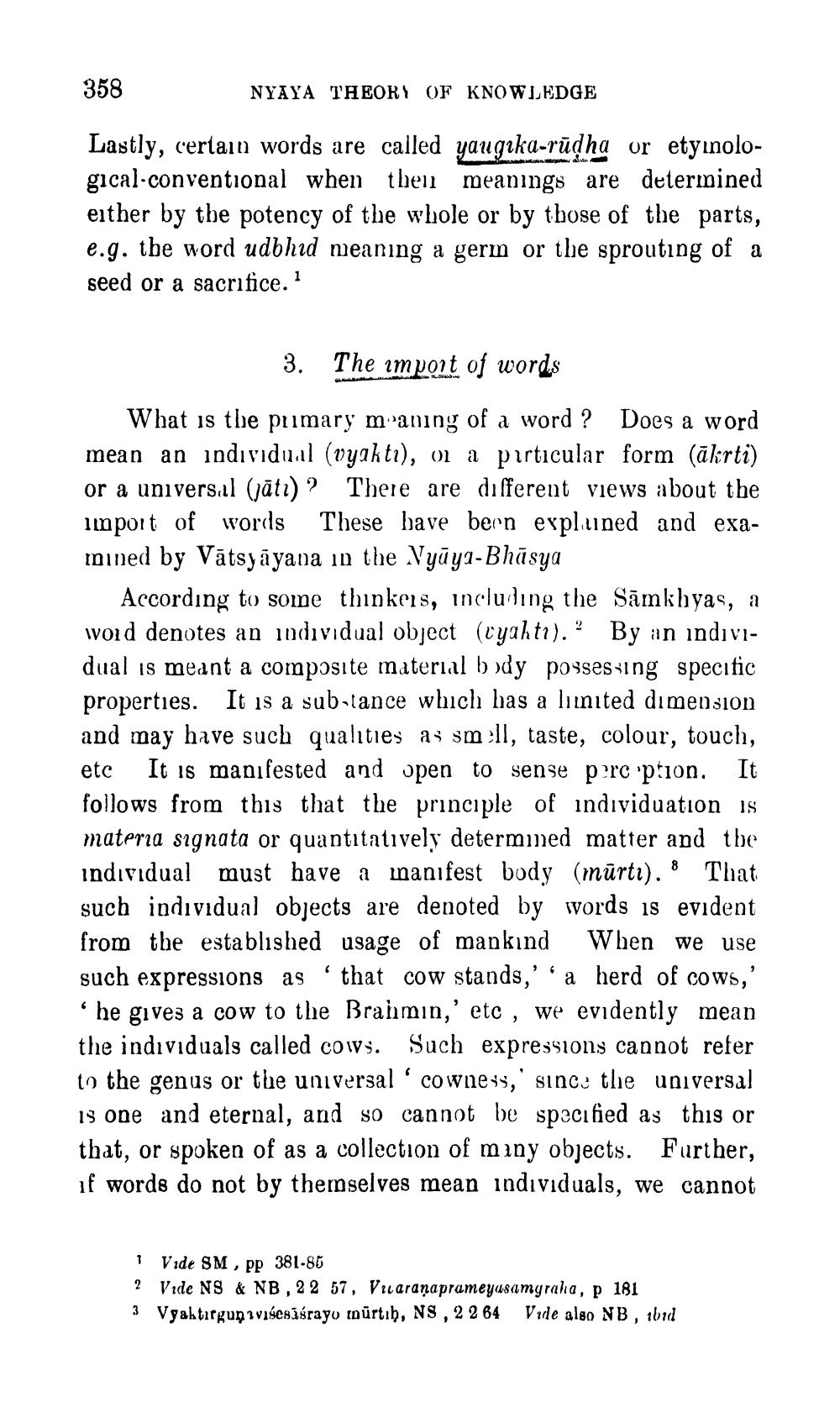________________
358
NYAYA THEORY OF KNOWLEDGE
Lastly, certain words are called yaugika-rūdha or etyinological conventional when then meanings are determined either by the potency of the whole or by those of the parts, e.g. the word udbhid meaning a germ or the sprouting of a seed or a sacrifice.
3. The import of words
What is the pumary m'aning of a word ? Does a word mean an individual (vyaktı), oi a particular form (ākrti) or a universal (jāti)? There are different views about the import of words These bave been expluned and examined by Vātsyāyana in the Vyāya-Bhāsya
According to some thinkers, including the Samkhyas, a word denotes an individual object (cyahtı). ? By an individual is meant a composite material b dy possessing specific properties. It is a sub-tance which has a lunited dimension and may have such qualities as smell, taste, colour, touch, etc It is manifested and open to sense perc'ption. It follows from this that the principle of individuation is materia signata or quantitatively determmed matter and the individual must have a manifest body (mūrti). 8 That such individual objects are denoted by words is evident from the established usage of mankınd When we use such expressions as 'that cow stands,'' a herd of cows,'
he gives a cow to the Brahmin,' etc, we evidently mean the individuals called cows. Such expressions cannot refer to the genus or the universal 'cowness,' sinc: the universal is one and eternal, and so cannot be specified as this or that, or spoken of as a collection of miny objects. Further, if words do not by themselves mean individuals, we cannot
I Vide SM , pp 381-86 2 Vide NS & NB , 22 57, Vicaranaprameyusamyrala, p 181 3 Vyaktırgunnvasesāśrayo tourtih, NS , 22 64 Vrde also NB, bed




